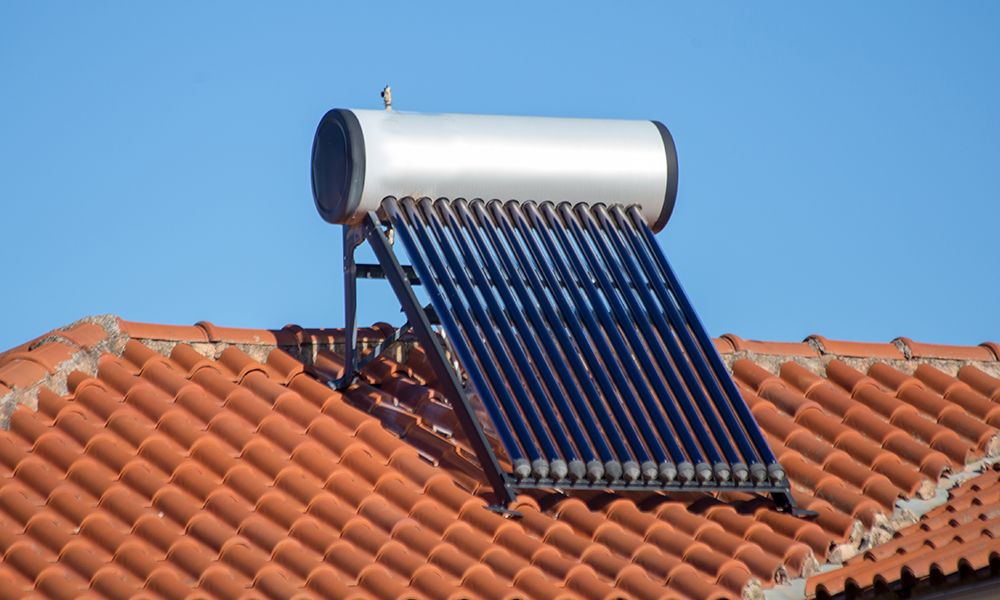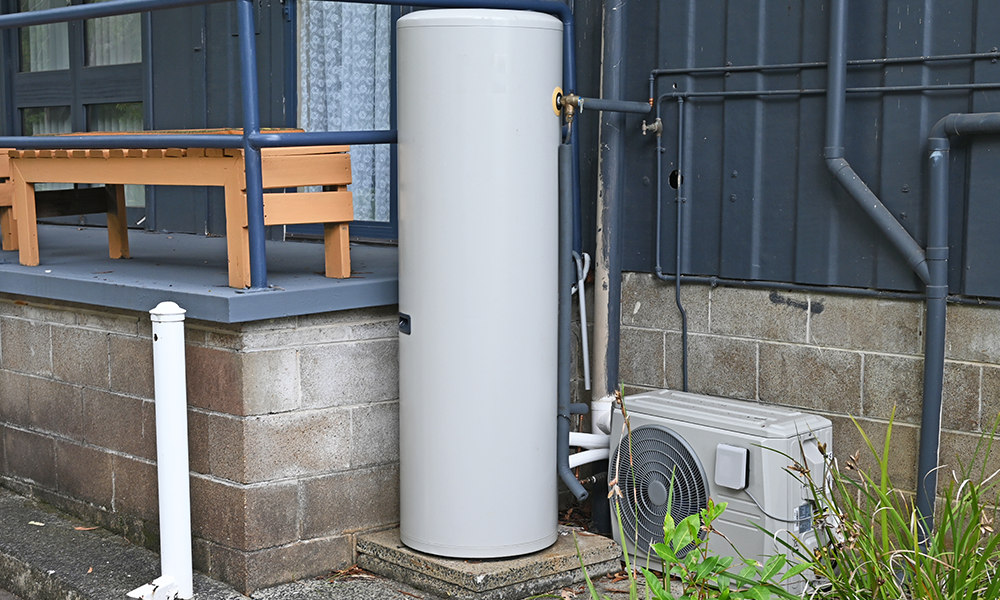Introduction
In the ever-growing search of energy efficiency and environmental sustainability, the water heating industry has witnessed a drastic shift towards innovative solutions. Two types of water heaters are establishing a strong presence: solar water heaters and heat pump water heaters. While both of these offer significant reduction in energy consumption over traditional water heaters, it is still important to understand their nuances in order to make an informed decision tailored to your individual needs and preferences. Let’s delve into the respective strengths, limitations, and suitability of these two technologies.
About Solar Water Heater

A solar water heater is a wonder of modern engineering, it harnesses the power of the sun to heat water for residential and commercial use. These systems typically comprise solar collectors, and a well-insulated storage tank. The solar collectors are strategically positioned on rooftops or in open spaces. They absorb the sun's radiant energy and transfer the heat to the water circulating through the system, the heated water is then stored in an insulated tank, ready for immediate use or for later consumption.
About Heat Pump Water Heater

On the other hand, a heat pump water heater operates on the principles of heat transfer. It extracts thermal energy from the surrounding air or ground and transfers it to the water in the storage tank. Unlike traditional water heaters that generate heat through combustion or resistance heating, heat pump water heaters use a refrigerant cycle and a compressor to move heat from one place to another. This process is remarkably efficient and consumes significantly less energy than direct heating methods.
Solar Water Heater vs Heat Pump
Both solar water heaters and heat pump water heaters offer substantial energy savings compared to conventional water heating systems. However, their performance and suitability are influenced by various factors, including climate, available space, and local utility rates.
Difference between Solar Water Heater and Heat Pump
While both systems strive to provide cost-effective water heating solutions, their operation, installation requirements, energy sources, and environmental impact are different.
Solar Water Heaters:
- Relies on direct sunlight as their primary energy source which makes them highly dependent on solar insolation levels.
- Require ample roof or ground space for the installation of solar collectors, which can be a restricting factor in dense urban areas.
- Can be more effective in sunny regions with high solar insolation which will maximize their energy-saving potential.
- May require a backup heating system for cloudy days or periods of high hot water demand.
- Have a lower environmental impact since they harness renewable solar energy and do not directly produce greenhouse gas emissions.
Heat Pump Water Heaters:
- Extracts heat from the surrounding air or ground which makes them less reliant on external energy sources.
- Can operate effectively in various climates, including cooler regions.
- Requires adequate ventilation and air circulation for optimal performance, which would need to be taken into consideration in case of tightly sealed buildings.
- Have a lower environmental impact compared to traditional water heaters, saving up to 70% energy.
Which is better: Heat Pump or Solar Hot Water?
The choice between a heat pump water heater and a solar water heater depends on several factors, such as location, climate, hot water demand, available space, and environmental consciousness.
Solar hot water heaters are generally more effective in sunny, warm climates, heat pump water heaters can be a viable option in areas with moderate temperatures, and heat pump water heaters may be preferred in dense urban areas where roof or ground space is limited, as they do not require large solar collector installations.
Cost-effective water heating are a key benefit offered by both systems, but their upfront costs and long-term savings may vary based on local energy rates, incentives, installation costs, and maintenance requirements.
In terms of environmental impact, solar water heaters have a clear advantage as they directly harness renewable solar energy, producing no direct greenhouse gas emissions. However, heat pump water heaters also have a lower carbon footprint in comparison to traditional water heaters, especially when powered by renewable or clean energy sources.
Temperature Control and Cost Considerations
One aspect that often sets these two systems apart is temperature control and cost implications. Solar water heaters rely on the intensity of the sun's rays, which can lead to fluctuations in water temperature, especially during colder months or periods of low solar insolation. This can result in the need for supplementary heating, increasing energy consumption and costs.
On the other hand, heat pump water heaters offer more consistent temperature control, as they can extract heat from the surrounding environment regardless of solar conditions. However, their energy consumption and costs can be influenced by factors such as ambient temperature and humidity levels, as well as the efficiency of the heat pump system itself.
When it comes to upfront costs, solar water heaters tend to have higher initial installation expenses due to the specialized equipment and potential structural modifications required. Heat pump water heaters generally have lower upfront costs but may have higher operating costs, depending on local energy rates and climate conditions.
In terms of long-term savings, both systems can provide significant cost reductions compared to traditional water heaters, but the extent of these savings will depend on factors such as local energy rates, available incentives or rebates, and the system's overall efficiency and maintenance requirements.
Conclusion
Both these technologies present impressive solutions for cost-effective and environmentally friendly water heating. Hence the debate on which is better, heat pump or solar hot water is based on everyone’s individual needs. The difference between solar water heater and heat pump is that, while solar water heaters harness the power of the sun, heat pump water heaters leverage the principles of heat transfer to provide hot water efficiently.
The choice between these two technologies ultimately depends on your location, climate, hot water demand, available space, and budget. By carefully evaluating your requirements and considering factors like environmental impact, temperature control, and long-term cost savings, you can make an informed decision that aligns with your energy-saving goals, financial status, and commitment to sustainable living.
As the world continues to embrace renewable energy and energy-efficient technologies, both solar water heaters and heat pump water heaters are poised to play a pivotal role in shaping a more sustainable future for water heating. Whichever path one chooses, that will be a step towards reducing carbon footprint and contributing to a greener future.



